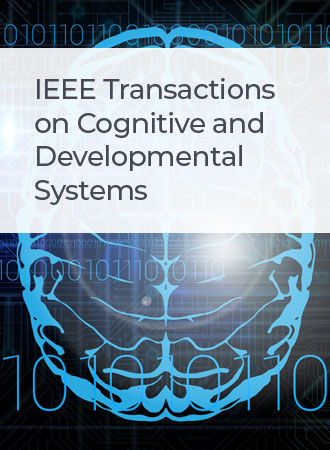Location-Guided Head Pose Estimation for Fisheye Image
IF 4.9
3区 计算机科学
Q1 COMPUTER SCIENCE, ARTIFICIAL INTELLIGENCE
IEEE Transactions on Cognitive and Developmental Systems
Pub Date : 2024-11-27
DOI:10.1109/TCDS.2024.3506060
引用次数: 0
Abstract
Camera with a fisheye or ultra-wide lens covers a wide field of view that cannot be modeled by the perspective projection. Serious fisheye lens distortion in the peripheral region of the image leads to degraded performance of the existing head pose estimation models trained on undistorted images. This article presents a new approach for head pose estimation that uses the knowledge of head location in the image to reduce the negative effect of fisheye distortion. We develop an end-to-end convolutional neural network to estimate the head pose with the multitask learning of head pose and head location. Our proposed network estimates the head pose directly from the fisheye image without the operation of rectification or calibration. We also created a fisheye-distorted version of the three popular head pose estimation datasets, BIWI, 300W-LP, and AFLW2000 for our experiments. Experimental results show that our network remarkably improves the accuracy of head pose estimation compared with other state-of-the-art one-stage and two-stage methods.鱼眼图像位置导向头部姿态估计
带有鱼眼或超广角镜头的相机覆盖了无法通过透视投影建模的广阔视野。图像外围区域严重的鱼眼镜头畸变会导致在未失真图像上训练的现有头部姿态估计模型的性能下降。本文提出了一种新的头部姿态估计方法,利用图像中头部位置的知识来减少鱼眼失真的负面影响。我们开发了一个端到端的卷积神经网络,通过对头部姿势和头部位置的多任务学习来估计头部姿势。我们提出的网络直接从鱼眼图像中估计头部姿态,而无需进行校正或校准操作。我们还为我们的实验创建了三个流行的头部姿势估计数据集BIWI, 300W-LP和AFLW2000的鱼眼扭曲版本。实验结果表明,与现有的一段和两段方法相比,该方法显著提高了头部姿态估计的精度。
本文章由计算机程序翻译,如有差异,请以英文原文为准。
求助全文
约1分钟内获得全文
求助全文
来源期刊

IEEE Transactions on Cognitive and Developmental Systems
Computer Science-Software
CiteScore
7.20
自引率
10.00%
发文量
170
期刊介绍:
The IEEE Transactions on Cognitive and Developmental Systems (TCDS) focuses on advances in the study of development and cognition in natural (humans, animals) and artificial (robots, agents) systems. It welcomes contributions from multiple related disciplines including cognitive systems, cognitive robotics, developmental and epigenetic robotics, autonomous and evolutionary robotics, social structures, multi-agent and artificial life systems, computational neuroscience, and developmental psychology. Articles on theoretical, computational, application-oriented, and experimental studies as well as reviews in these areas are considered.
 求助内容:
求助内容: 应助结果提醒方式:
应助结果提醒方式:


